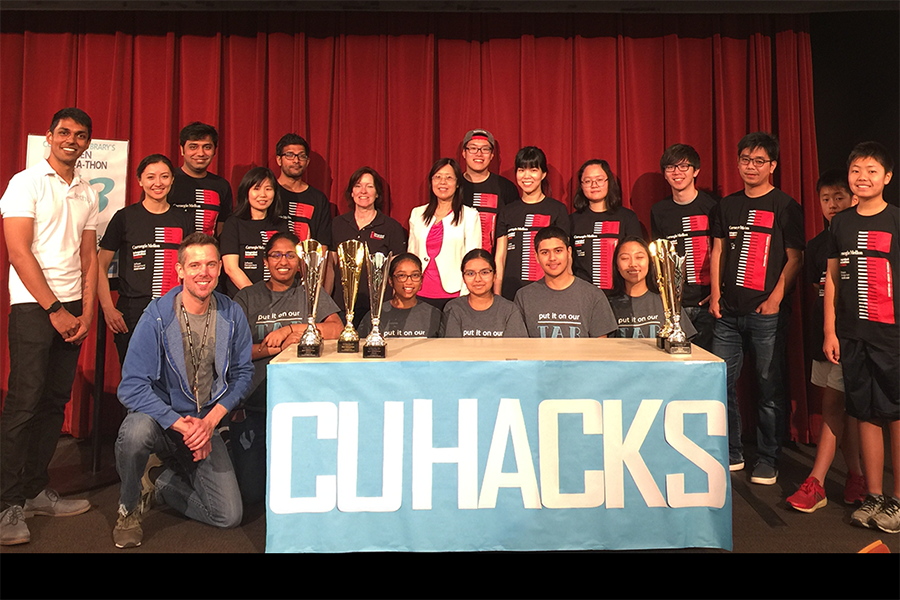
CMU-SV students and faculty mentor teens in hackathon
This summer, students and faculty from Carnegie Mellon University Silicon Valley (CMU-SV) collaborated with the Santa Clara County Library District (SCCLD) and Cupertino Library on the third annual Teen Hackathon (CU Hacks 3) in the Cupertino community. Students and faculty from CMU-SV worked closely with the library and acted as mentors for the local teens, who were invited to attend the free event held on Saturday, June 24, 2017.
The goal of the hackathon, which had the theme of “Smart City,” was to encourage local teens (age 14-18) to code prototype applications that would help the Cupertino community become a better place to live—all while giving the students hands-on knowledge in computer science and software engineering.
“I see parallels in the hackathon with what we do in school,” says hackathon mentor Elaine Aw, a master’s student studying Software Management at CMU-SV. “For example, in our classes, we identify real-world problems to solve with the development of minimal viable products. We form groups and create prototypes very rapidly to test in the market—all in a few weeks. In the hackathon, the students gathered their ideas in a short timeline, and they created prototypes to present on stage within a day. It was something challenging for them, and we were glad to facilitate their process with our experiences.”
Ten CMU-SV students from the Integrated Innovation Institute, the Department of Electrical and Computer Engineering, and the Information Networking Institute, as well as CMU-SV faculty Gladys Mercier and Catherine Fang, acted as mentors during the competition. CMU-SV Professor Catherine Fang coordinated with the event organizers, Cupertino Library’s Matt Lorenzo and Roslyn Donald, to define the mentor role. CMU-SV students used the skills they acquired at Carnegie Mellon by providing guidance to the teens on such topics as project idea brainstorming, team collaboration, quick research skills, debugging, and formality on
Around 100 students participated in the competition, and students were divided into 15 teams of six to seven members, with participants separated into four B]beginner teams and 11 intermediate/advanced teams. The students’ applications, aka “hacks,” could include phone apps, websites, robots, and other innovative ideas that could contribute to bettering the community. The winning team created an image recognition app that, when given a photograph of a plastic or glass bottle, a container, or another object, would tell the user whether that item is recyclable or not.